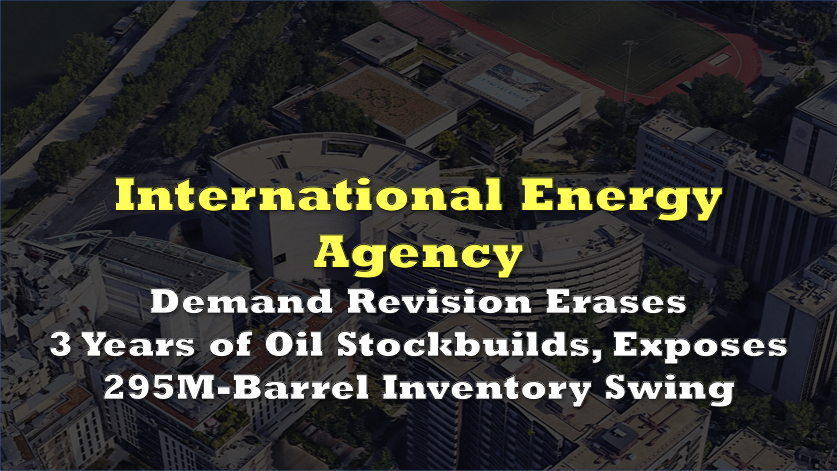The International Energy Agency has upended oil market narratives with a sweeping revision to historical demand data, erasing three years of perceived inventory growth and exposing a 295-million-barrel swing in global stockpile dynamics.
The agency now estimates a net drawdown of 74.6 million barrels from 2022–2024, reversing its prior forecast of a 220-million-barrel stockbuild. This adjustment—equivalent to 73% of the US Strategic Petroleum Reserve—addresses long-standing discrepancies in reported “missing barrels” and recalibrates baseline supply-demand calculations.

Higher-than-expected 2023 consumption in Egypt and Nigeria drove 75% of the 330,000 barrel-per-day upward demand revision, primarily within Africa. The IEA’s forecasting methodology, which anchors projections to historical consumption levels, amplified the ripple effect: raising the 2023 baseline automatically increased 2024–2026 demand estimates, even without altering annual growth rates.
At a stroke, the IEA’s revision wiped out all the stockbuilds it saw in 2022, 2023 and 2024.
— Giovanni Staunovo🛢 (@staunovo) May 19, 2025
Rather than adding 220 million barrels of oil to global inventories during those three years, the IEA now says we have drawn them down by nearly 75 million barrels. That swing is… https://t.co/hJyjYEHXlr
Despite the tighter inventory picture, the IEA warns of looming surpluses. Supply is projected to outpace demand by over 1 million barrels per day in Q3 2024, assuming OPEC+ pauses planned output hikes. This gap could widen if Iran—exempt from OPEC+ quotas—increases production.
The revised inventory data implies storage buffers are thinner than previously assumed, potentially mitigating price collapses but insufficient to reverse bearish fundamentals.
Information for this story was found via Bloomberg and the sources mentioned. The author has no securities or affiliations related to the organizations discussed. Not a recommendation to buy or sell. Always do additional research and consult a professional before purchasing a security. The author holds no licenses.









